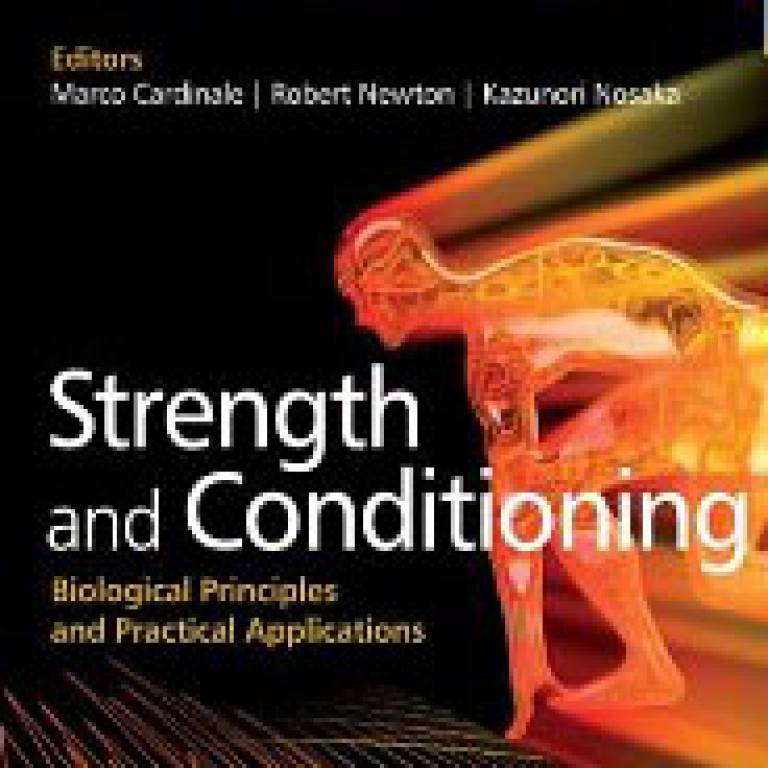Strength and Conditioning: Biological Principles and Practical Applications
7 January 2011
Links:
 ucl.ac.uk/surgicalscience/people/academic-staff/cardinalem" target="_self">Dr Marco Cardinale
ucl.ac.uk/surgicalscience/people/academic-staff/cardinalem" target="_self">Dr Marco Cardinale
Dr Marco Cardinale (UCL Surgery and Interventional Science) has worked with colleagues to compile Strength and Conditioning: Biological Principles and Practical Applications.
The book contains the latest scientific and practical applications in conditioning and strength. Dr Cardinale explains how the science of keeping elite athletes at their peak can also benefit the rest of the population.
"The science of training has evolved enormously in the last 20 years as a direct result of the large volume of research and the innovative technology in this area. This technology is capable of measuring athletic performance, both in the lab and on the field of play.
Strength and conditioning is now acknowledged as a critical component in the development and management of elite athletes, but it can also be applied to the health and fitness regime of the general public. Strength and conditioning is now considered one of the main ways to improve health and human performance for everyone.
Modern advancements in molecular biology are now helping us understand - with much greater insight - how muscle adapts to various training and nutritional regimes. We now have more advanced capabilities for prescribing 'evidence-based' strength and conditioning programmes to everyone, from the elderly and special populations to the elite athlete.
Our aim with this book is to collect all the most relevant and up-to-date information on this topic as written by world leaders in this field, to provide a more comprehensive record for everyone. The way the material has been presented in the book varies from chapter to chapter. We wanted our contributors to present their area of expertise for a varied audience, ranging from sports scientists to coaches to postgraduate students.
Authors from many countries have contributed to this book and whatever their writing style, we are confident the material can catch the attention of every reader."
In the foreword for Strength and Conditioning, Sir Clive Woodward, who won the Rugby World Cup as England Manager in 2003, explained: "When a group of sports scientific leaders from all over the world come together to produce a book about the human body and performance, the reader can be assured the material is at the leading edge of sports science. I recommend that you read and use the information in this book to provide your athletes with the best chances of performing at their peak level."
Image: Strength and Conditioning: Biological Principles and Practical Applications published by Wiley-Blackwell, December 2010
UCL context
UCL 's Division of Surgery and Interventional Science brings together four major research departments; Sports Exercise and Health, Surgical Research, Urology, and the Institute of Orthopedics and Musculoskeletal Science. Within these departments are world-class research centres specialising in sports education, tissue repair, oncology, biomedical engineering, laser medicine, and anaesthetics, to name but a few.
 Close
Close

